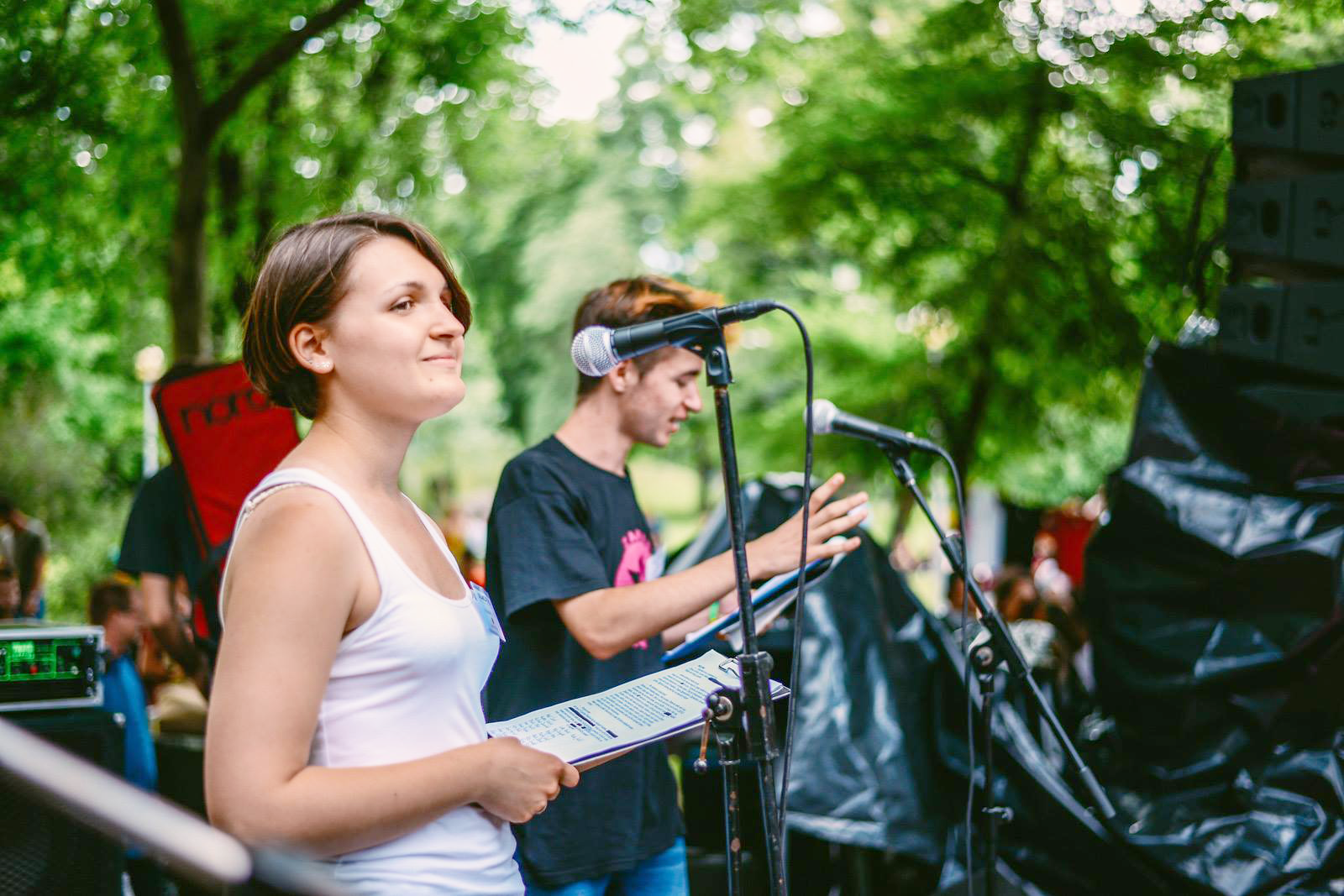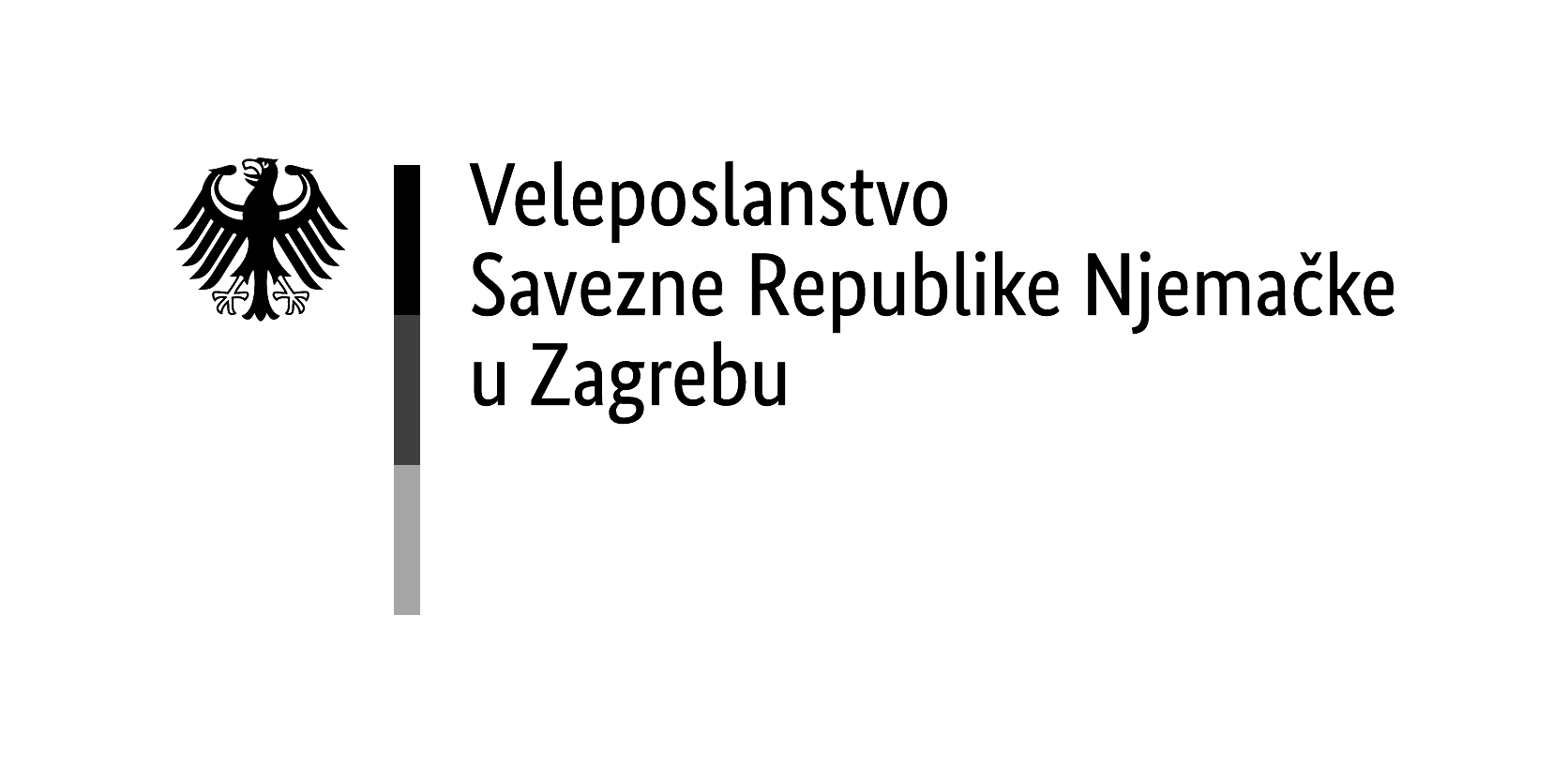Zagreb Pride is a queer-feminist and anti-fascist organization which is committed to the achievement of an active society of solidarity and equality free from gender sexual norms and categories and any other kind of oppression.
Zagreb Pride exists for the achievement of social justice and systematic improvement of LGBTIQ rights through advocacy for public good. We consistently, publicly, vocally and directly fight against homophobia, biphobia, transphobia, sexism, chauvinism, misogyny, racism and all forms of exclusiveness. Zagreb Pride is a progressive force which continually puts in focus societal problems and encourages all forms of public- society, stakeholders and the LGBTIQ community- to transform the society and make it more equal and equitable for everyone.
As an informal group under various LGBT and related organizations Zagreb Pride has been active since 2002., and since 10.09.2008. it is registered as a non-government organization.
Zagreb Pride strives towards an active society of solidarity, equality, equity and social justice, which is achieved through the deconstruction of the patriarchy in all its forms, whilst acknowledging every person’s right to self-determination, self-identification and self-definition. Through education, research, advocacy, empowerment and direct action, Zagreb Pride struggles for the rights of LGBTIQ individuals and community, non-normative families and society as a whole and works on the elimination of all forms of discrimination based on the full promotion, respect and protection of human rights.
- Organizing Zagreb Pride – the Pride March of lesbian, gay, bisexual, transgender, intersex and queer individuals and accompanying events
- Promotion and protection of human rights of LGBTIQ individuals, as well as promotion and education about human rights
- Promotion of LGBTIQ culture
- Pointing out problems with sexism, homophobia, lesbophobia, biphobia and transphobia in society
- Prevention and pointing out discrimination and violence based on sex, gender, sexual identity, gender identity, gender expression, sexual orientation and intersex characteristics
- Developing solidarity in the LGBTIQ community
- Organizing workshops, courses, lectures, seminars, tribunes, congresses and other activities which are accordant with the goals and principles of our association
- Logistical support with the organization of the LGBITQ Pride March and accompanying events and other public gatherings of LGBITQ individuals
- Joining and strengthening of national, regional (South-East European) and international LGBITQ movement
- LGBTIQ publishing, video and web production
- Cooperation with the public and media
Queer-feminism – a movement that sprang from postmodern feminist theory and queer theory. Queer-feminism is a critique of the LGBT movement and of the polarization between liberal and radical feminism. It advocates for the deconstruction of the patriarchy through a wide front and collaboration of various underprivileged social classes.
Anti-fascism – a movement of active opposition and action against every form of fascism and ideologies or movements which are based on the superiority of one (e.g. ethnic, national, religious, gender, racial…) group over another: primarily Nazism, the Ustasha movement, apartheid, imperialism, machismo, heterosexism and militarism.
Equality – implies equal opportunities for achieving all human rights in the cultural, social, economic and political sense and equal benefit from achieved results, regardless of gender and/or sex categories.
Self-determination – implies the right of every person to identify and define or change their identity regardless of sex, gender, sex and gender identities, sexual orientation and overall sexuality, nationality and ethnic affiliation, either in relation to their own body or social status, as long as that right does not violate the rights of other people.
Solidarity – implies the effort to establish connectedness, mutual cooperation or support within Zagreb Pride and with other individuals, small and large groups, especially in conditions of oppression, exploitation and any other form of violence and social injustice.
Secularity – the commitment to the principle of the separation of state institutions and persons authorized to represent the state from religious institutions and religious representatives. The commitment to secularity also involves the stance that public activities and decisions, especially political ones, have to be free of any religious beliefs and/or practices, and that persons of different religious affiliations are equal before the law and are not regulated in their public activity based on their religion. Secularity enables the balance of each person’s right to their own religious affiliation, as well as the right to be free of religion.
Antimilitarism – the active opposition to any form of military action which includes the deprivation of human rights and the exaltation of the army, the influence of nationalism and the macho-militaristic spirit on our social and political lives.
Nonviolence – represents a type of action that excludes all forms of violence directed towards others, ourselves or the environment that is used to achieve political, social and personal goals. For Zagreb Pride it represents all active nonviolent forms of confrontation such as civil disobedience, nonviolent resistance and nonviolent communication.
Social engagement – implies the active participation of individuals and groups in society and the invitation and encouragement of others to do the same with the goal of creating positive social change, as well as achieving a better and more just society for all.
Promoting vegetarianism and veganism – raising awareness of the ethical, environmental and economical unacceptability of killing, abusing and using animals (e.g. in food, fashion, cosmetics, pharmaceutical and entertainment industries), as well as the commitment to the achievement of a non speciesist society in which all living beings will be equal, by encouraging others to question and change their habits which involve violence against animals.
Feminist care ethics – a concept that critically questions cultural care settings and their gender dimensions. Contrary to the patriarchal form of care in which women are responsible for all reproductive and emotional labor, care is here defined as a social and moral practice and a civil responsibility of each individual, towards themselves, others and the material environment, based on an assumption that we can live only because of others who contribute to our existence and welfare.
The key terms for feminist care ethics are: vulnerability – every person is vulnerable in their own way and is, because of that, in need of care; trust – as opposed to fear of others, trust in others and recognition that we can count on other people; power – mutual awareness of the relation of power and mutual capacity to become subjects, not objects, of power; responsibility – for ourselves and others, doing what is needed, when it is needed; support – as opposed to help which implies a patronizing relationship between the person receiving help and the person giving it, support entails an equal relationship and respect for autonomy.
Non-hierarchical work – implies a horizontal organization of work based on the principles of cooperation, support, engagement and voluntariness.
Anticlericalism – active opposition to the influence of the clergy and clerical stances on political and social issues, their involvement in everyday lives of citizens, their privileges and the indoctrination of society.
Environmental protection – the continuous effort to reduce processes and behaviors which are harmful to the environment, which also implies the sorting and recycling of waste, the effort to reuse waste if possible and the rational use of energy and other resources.
Resistance to economic inequality – offering support to and connecting with various social groups, politics and initiatives whose goal is to preserve and improve workers’ rights and the rights of socially disadvantaged groups and whose purpose is the abolition of class differences and equal access to economic security for all.
Fellowship – maintaining warm and friendly relationships based on mutual respect, appreciation, honesty, trust, reliability and support between various individuals and groups




